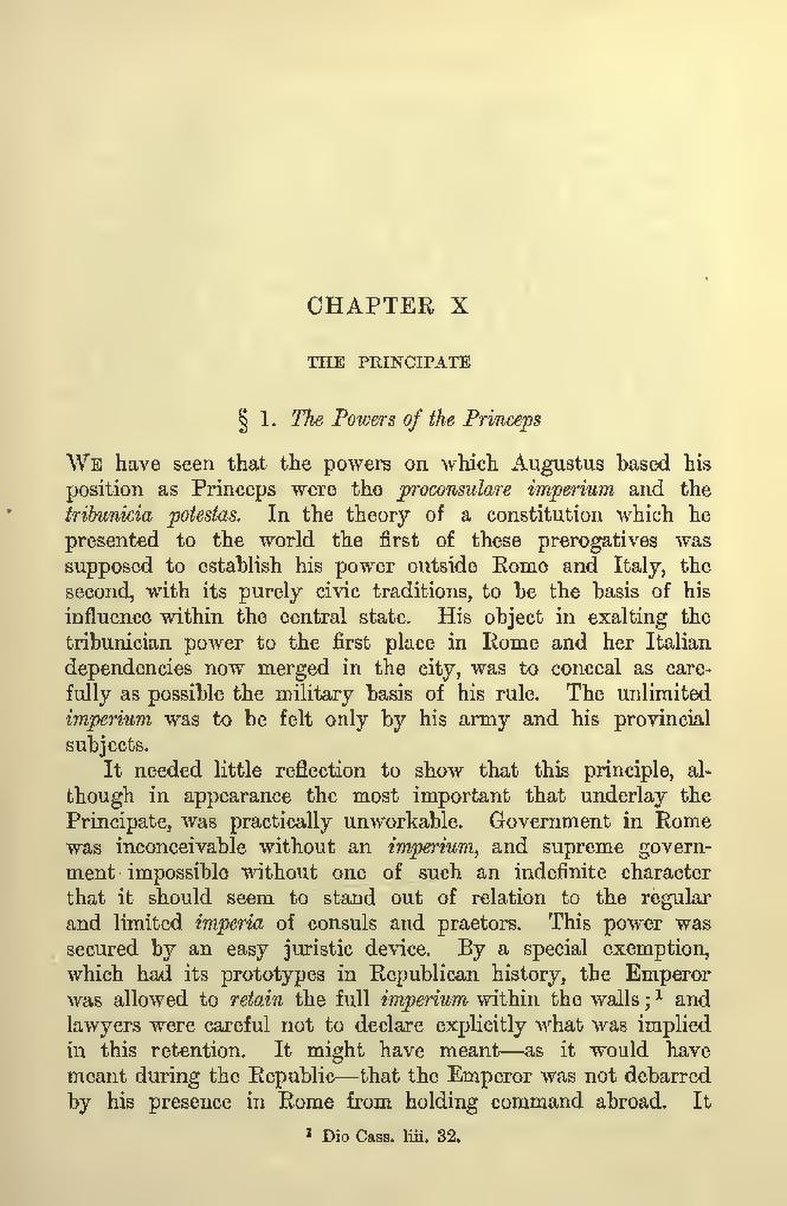CHAPTER X
THE PRINCIPATE
§ 1. The Powers of the Princeps
We have seen that the powers on which Augustus based his position as Princeps were the proconsulare imperium and the tribunicia potestas. In the theory of a constitution which he presented to the world the first of these prerogatives was supposed to establish his power outside Rome and Italy, the second, with its purely civic traditions, to be the basis of his influence within the central state. His object in exalting the tribunician power to the first place in Rome and her Italian dependencies now merged in the city, was to conceal as carefully as possible the military basis of his rule. The unlimited imperium was to be felt only by his army and his provincial subjects.
It needed little reflection to show that this principle, although in appearance the most important that underlay the Principate, was practically unworkable. Government in Rome was inconceivable without an imperium, and supreme government impossible without one of such an indefinite character that it should seem to stand out of relation to the regular and limited imperia of consuls and praetors. This power was secured by an easy juristic device. By a special exemption, which had its prototypes in Republican history, the Emperor was allowed to retain the full imperium within the walls;[1] and lawyers were careful not to declare explicitly what was implied in this retention. It might have meant—as it would have meant during the Republic—that the Emperor was not debarred by his presence in Rome from holding command abroad. It
- ↑ Dio Cass. liii. 32.
